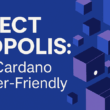Let’s talk about speed. In traditional finance, high frequency trading (HFT) dominates, and thats a fact many traders struggled with. Smart contracts execute millions of trades in seconds, taking advantage of tiny price differences. This happens on major centralized crypto exchanges (CEXs) like Binance, Bybit, and Coinbase.
But in decentralized finance (DeFi), it’s a different story. Most decentralized exchanges (DEXs) are not built for speed. Every trade must be recorded on-chain, meaning it waits for block confirmations. That’s great for security but terrible for HFT. Traders need instant execution, deep liquidity, and efficient order matching things that most DEXs struggle to offer.
This is a huge gap in the crypto market. Billions of dollars flow through HFT strategies on CEXs daily, but DeFi remains underutilized. That’s where the innovation begins. Why isn’t HFT widespread in DeFi yet, The answer is blockchain limitations.
First, there’s latency. Blockchains process transactions in blocks, and each block takes time to confirm. If a trader wants to adjust an order instantly, they must wait for network validation. On platforms like Ethereum, this can take seconds to minutes, far too slow for high speed trading.
Second, there’s cost. Every transaction on a blockchain requires a gas fee. If traders are placing, canceling, and modifying orders rapidly, those fees add up fast. CEXs don’t have this problem because they handle trades off-chain before settling them.
Third, there’s liquidity fragmentation. Most DEXs operate on Automated Market Makers (AMMs), where liquidity is pooled instead of ordered in a book. This means HFT traders can’t take advantage of traditional strategies like market making, arbitrage, and scalping as easily.
Key Takeaways
- HFT is missing in DeFi because most DEXs are too slow and costly.
- DeltaDeFi’s Virtual Order Book (VOB) allows fast, cheap order management while keeping everything decentralized.
- This is a major upgrade for Cardano, bringing in more liquidity, professional traders, and real competition to CEXs.
Introducing DeltaDeFi, The Instant Order Confirmation on Cardano
Important note, Cardano has a unique blockchain structure known as the UTxO model, which is different from Ethereum’s account based model. This model offers better security and parallel transaction processing, making it a strong foundation for scalable, efficient DeFi.
However, Cardano’s DeFi space is on the rise. Most DEXs built on Cardano follow AMM models, which, as we discussed, aren’t ideal for HFT. Liquidity is still limited, and the infrastructure for fast, order book based trading is largely missing. This is where DeltaDeFi comes in.
DeltaDeFi is a project that aims to bring true HFT capabilities to the Cardano ecosystem, with the mission to make decentralized trading as fast, efficient, and cost effective as centralized exchanges, without compromising security or decentralization.
The core problem is that most DeFi platforms can’t handle HFT due to inefficiencies in order execution, high costs, and slow transactions. Traders who want to engage in HFT must stick to CEXs, exposing them to custodial risks, meaning their funds are controlled by the exchange, not them. If an exchange collapses, like FTX did, traders can lose everything.
DeltaDeFi’s solution is a new kind of decentralized exchange infrastructure that allows high speed, low cost trading without requiring users to give up control of their funds.
How DeltaDeFi Operates
DeltaDeFi introduces something called the Virtual Order Book (VOB). Unlike traditional order book DEXs, where transactions happen on-chain, the VOB allows traders to place, modify, and cancel orders off-chain. This means orders can be managed instantly, without waiting for blockchain confirmations. But when trades are executed, they are settled on-chain, ensuring security and transparency. This setup brings three major benefits.
- Zero Order Management Costs: You can place and cancel orders freely without paying gas fees. Fees only apply when orders are actually executed.
- Instant Order Finality: Orders are confirmed instantly at the time of placement, making the experience feel just like a CEX.
- Non Custodial Security: Funds remain in Cardano smart contracts, ensuring users retain full control over their assets.
For traders, using DeltaDeFi is meant to feel just like trading on a CEX, but with all the benefits of decentralization. You simply connect your wallet, deposit funds into a secure smart contract account, and trade with minimal friction.
The order book is structured just like traditional financial markets. It uses price time priority, meaning orders with the best prices are matched first, and if multiple orders have the same price, the earliest one gets executed first. This ensures fairness and efficiency.
Unlike typical DEXs where trades can suffer from slippage where the final execution price is different from the expected price, DeltaDeFi eliminates slippage at the blockchain level, making price execution more predictable.
DeltaDeFi is an infrastructure upgrade for the entire Cardano ecosystem. By enabling HFT, it:
- Increases Liquidity: More trading volume means deeper order books and better prices.
- Attracts Institutional Investors: Traditional finance firms and professional traders now have a decentralized alternative.
- Bridges the CEX-DEX Divide: You no longer have to choose between speed and security
The Broader Perspective of DeltaDeFi Innovation
Right now, most crypto trading happens on centralized platforms. This is a huge risk, as we’ve seen with past exchange failures. The long term vision for DeFi is not to replace CEXs entirely but to make trading experience better, and for that to happen, DEXs need to match CEXs in speed, efficiency, and usability.
DeltaDeFi is building that bridge. They are creating a trading experience that offers all the advantages of centralized exchanges while maintaining the trustless, decentralized ethos of blockchain.
This is not only for high frequency traders, it’s a great innovation for all traders at large, because a more liquid, efficient DeFi ecosystem benefits everyone. Exciting things are on the horizon. DeltaDeFi is making big upgrades as they’re preparing for the second round of Alpha testing. This is just the beginning, and we all can’t wait to make good use of the platform.










